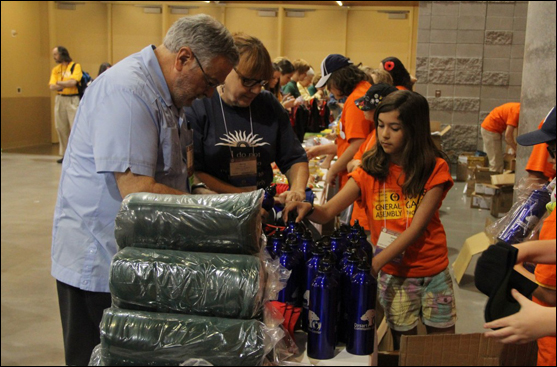
Young justice seekers
This emphasis upon equality can be a source of continuing frustration for parents who repeatedly hear about how things are unfair because another sibling got more than they did. While it is easy for adults to recognize that different children have different needs (and an older child may have a later bedtime because he or she requires less sleep), children are unable to make such distinctions between who is more deserving or in greater need. From their perception, fairness is equality, which means everyone gets the same treatment regardless of circumstances.
Despite this, even young children have an innate sense of injustice. Even though they are basically egocentric creatures, they still desire to help others. If we offer them opportunities to respond to the injustice in the world, we can affirm and encourage this compassion.
The best way we can do this involves the difficult work of building relationships between the people who need assistance and the children who can offer it. While collecting cans and boxes for food pantries is important, they will make a greater connection with the challenges of economic justice if they are able to go along as the food is delivered or given to families in need. Likewise, packing a backpack full of school supplies is valuable, but even more so if the children get to meet and actually talk to the children who will be receiving these gifts. If a face-to-face meeting is not feasible, a picture and story about the child or family can go a long way to helping our children make the connection between their actions and the need to be working for justice in the world.
Photo: People of all ages (including UUA President Peter Morales) took part in the "Beat the Heat" Backpack Project at the 2012 Justice General Assembly of the UUA. (Dea Brayden/UUA)







